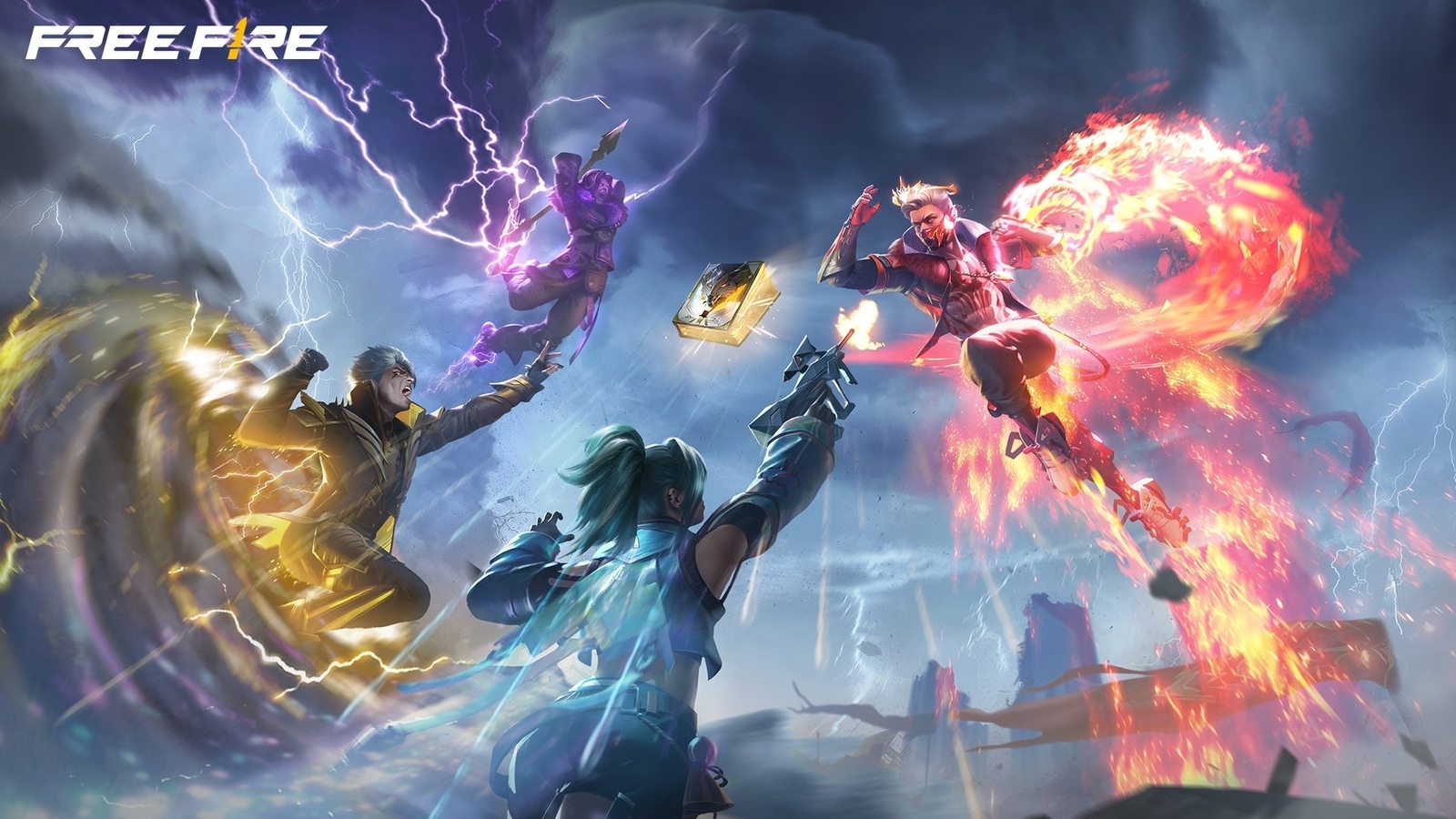COLORADO SPRINGS — Charlene Slaugh’s family insisted she did not have to bring presents to Christmas this year. Her survival, they said, was gift enough.
Ms. Slaugh, 35, had been shot repeatedly when an assailant opened fire inside an L.G.B.T.Q. club in Colorado Springs last month, killing five people. When the shooting stopped, Ms. Slaugh was bleeding from 13 wounds that ran from her abdomen to her neck. By Christmas, she had been out of the hospital for only two weeks and sometimes needed a cane to walk. But she was determined not to show up empty-handed.
So on Sunday, she made her way around her younger brother James’s living room, handing out $25 Walgreens gift cards to her family and friends.
“I’m sorry guys,” she told them. “I didn’t have time to shop.”
For families affected by the 639 mass shootings across the country this year, this is a holiday season of fresh grief and pain. In Uvalde, Texas, some parents of the 19 children killed inside Robb Elementary School posted photos on social media from Christmases past of their children hanging ornaments on the tree.
But in a little yellow house in Colorado Springs, the Slaughs and their friends also made this Christmas an act of resolve.
“I wasn’t going to let this break Christmas,” James Slaugh, 34, said.
Charlene and James Slaugh had been together inside Club Q on Nov. 19, enjoying each other’s company and a night of drag performances, when the attacker charged in shortly before midnight.
Mr. Slaugh was shot in the right arm. His boyfriend, Jancarlos Del Valle, was grazed in the thigh. The three of them lay on the floor among the dead and wounded and broken glass, not knowing who had survived, when the police were coming or whether the shooter was still stalking them.
Ms. Slaugh said she had not even realized she had been shot until she tried to dial 911 and could not move her arm. Mr. Slaugh said he watched in horror as she bled onto the floor.
The siblings had always been close, two gay children of Mormon parents who grew up being taught that homosexuality was sinful.
Ms. Slaugh was a teenager when she confided to her brother James and their other siblings that she was gay. When her mother found out, she forced her daughter, then 19, out of the home. When Mr. Slaugh began coming out in his early 20s, his big sister Charlene was the first of his four siblings he told.
“I see Charlene as the strongest one because she paved the way for me to be accepted,” Mr. Slaugh said.
The siblings said that their mother grew to accept their sexuality and support them. She joined other members of the church who advocated for L.G.B.T.Q. people, and attended the Colorado Springs Pride festival in 2019.
Their mother died of Covid-19 in October 2021. Without the bond of their mother, the family spent last Thanksgiving and Christmas apart.
This year, they wanted to be together. Mr. Slaugh, who hosted them, strung up lights and garlands at his home and made a gingerbread house — a frustrating undertaking with his right arm partially immobilized by the gunshot wound. He and his boyfriend, Mr. Del Valle, took charge of stuffing people’s stockings.
The oldest brother, Mark Slaugh, cooked a ham, mashed potatoes and roasted vegetables. There were visits from friends who had started calling Ms. Slaugh “Warrior Goddess” since the shooting and had slept by her bed during her 22 days in the hospital.
Around noon, they tore open presents and shared old holiday stories, recalling how Ms. Slaugh would roust her family out of bed at 5 a.m. on Christmas Day, or how Santa had put presents in their shoes, a nod to their Brazilian mother’s Christmas traditions.
They also told new stories.
About how their father and three other siblings frantically tried to reach them in the hours after the shooting, not realizing that the police had taken their phones. About how they spent part of Thanksgiving in the hospital at Ms. Slaugh’s bedside. About how Ms. Slaugh had wheeled around the hospital, handing out cookies to staff on her floor. (She is planning to go back soon to give out doughnuts.)
The siblings joked that they had super healing powers of the comic-book character Wolverine, and said they were focused on forging some positive change from surviving the shooting.
Mr. Slaugh gave impassioned testimony to a congressional committee this month decrying anti-L.G.B.T.Q. rhetoric and violence. Ms. Slaugh, who watched him from afar, has kept a lower profile. For now, she is determined to get back to her love of kayaking and hiking.
“I’ve been telling myself I’m not going to let this experience define me,” she said.
Her brother and his boyfriend said they had realized after the shooting that they were among the least-hurt of those wounded in the attack. Over the past month, they said they had dealt with feelings of guilt.
“People hear about these shootings, they understand that people survived,” Mr. Slaugh said. “But I don’t think they understand the cost of surviving.”
He and his boyfriend, Mr. Del Valle, started dating after they met at Club Q in April. This Christmas was the first Mr. Del Valle, 34, had ever celebrated: a new holiday with a new family.
Mr. Del Valle had been raised as a Jehovah’s Witness, whose followers do not celebrate Christmas, and said he was shunned by his family and friends after coming out as gay at age 30.
Similar conversations about family and identity, pain and healing were unfolding this holiday weekend across Colorado Springs.
Club Q played a special role for the L.G.B.T.Q community during the holidays. The club would host dinners on Thanksgiving and Christmas, a comfort for people whose families lived far away, or had cut off contact. It was a quiet evening, sometimes featuring a drag show. A family dinner for chosen family. This year, the club was dark on Christmas Day, as it has been since the shooting. The club owners have said they are starting to discuss what Club Q’s next chapter might look like.
“I always went,” said Ed Sanders, a longtime regular at the club’s karaoke and Bingo nights who was shot in the back and leg. “People would come to get away from their families, or in lieu of their families. It was really important they did that.”
Mr. Sanders was staying close to home and nursing pain in his leg that made him worry his wound was not healing correctly and that he might need another skin graft. “It’s a bit of an ache,” he said. “But it’s nothing I can’t handle.”
Mr. Sanders was expecting some friends to stop by, and a neighbor had left chocolates and chicken enchiladas at the doorstep of his home.
Ashtin Gamblin, who was shot while she was working the front door of the club, had been planning a picture-perfect Christmas for her husband, a service member stationed at nearby Fort Carson who was due home after an overseas deployment. She wanted her house to look like “Macy’s exploded,” she said.
“I wanted to plan out ice skating and Christmas-light tours and just honestly have the first almost-perfect holiday with him being home for Christmas,” she said. “That’s kind of been destroyed.”
Her husband finished decorating their house during the six days after the attack when she was in the hospital, and the shooting upended her plans to invite friends and colleagues from Club Q for a late Thanksgiving.
“Christmas doesn’t feel like Christmas,” she said. “There’s a lot of community support, and I appreciate that more than anything. But holidays, especially this one — everything is different.”
On Christmas Eve, James and Charlene Slaugh and Mr. Del Valle drove to Club Q for a Christmas-caroling memorial. It was Ms. Slaugh’s first time back since the shooting.
She walked carefully through the parking lot, where the day’s slush was hardening into ice, balancing herself on a green cane.
About 50 people in Santa hats and holding candles shivered beside a memorial of bouquets, cards and candles. They made speeches remembering the five people killed. They recalled how Daniel Aston, one of the two slain bartenders, had been a poet who declared his own beauty as a transgender man in a video shown during his funeral. How Ashley Paugh, who had gone to the club for a night out, had loved her daughter.
After they shouted “Merry Christmas!” into the sky, most people trickled away. But some of the survivors and Club Q regulars who had lost friends stayed to reconnect and sift through the fragments of that night.
“Did you roll me over?” Ms. Slaugh asked one man who had been inside. “Was that you?”
They huddled together as fresh votives glowed beside burned-out candles. They talked about how it had taken days for news of the victims’ identities to reach them in the hospital. Ms. Gamblin said she was still searching for a wedding ring that had been taken off after she was rushed to the emergency room.
Ms. Slaugh said it felt surreal to be there again, looking at posters of the smiling faces of each victim. She placed a candle by the wilting bouquets in the parking lot, and lingered with her brother and his boyfriend for a while longer in the cold.
Edgar Sandoval contributed reporting.
























